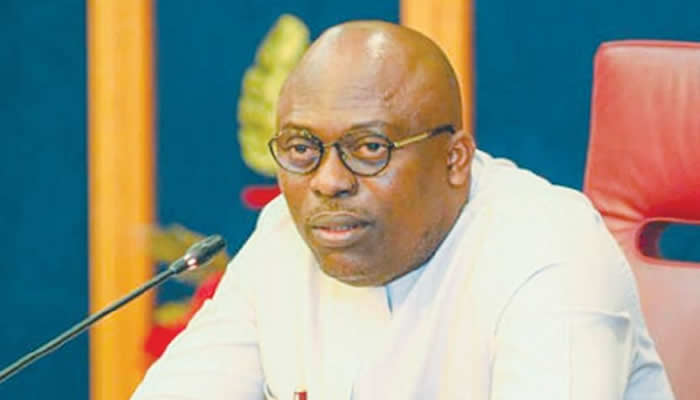The political landscape of Rivers State, Nigeria, is embroiled in a deep-seated power struggle, primarily between Governor Siminalayi Fubara and the Minister of the Federal Capital Territory, Nyesom Wike. This conflict has fractured the state House of Assembly, leading to two competing factions vying for legitimacy. The crux of the dispute revolves around the defection of 27 lawmakers, led by former Speaker Martin Amaewhule, from the Peoples Democratic Party (PDP) to the All Progressives Congress (APC) in December 2023. This action, according to the Fubara-aligned caucus in the House of Representatives, has rendered these lawmakers ineligible to hold their seats.
The Fubara loyalists, led by Awaji-Inombek Abiante, representing Andoni-Opobo/Nkoro Federal Constituency, maintain that the defection of Amaewhule and his 26 colleagues automatically disqualified them from their positions in the state assembly. This assertion is rooted in their interpretation of Sections 109(1)(g) and 68(1)(g) of the Nigerian Constitution, as well as relevant Supreme Court precedents, which stipulate that lawmakers lose their seats upon switching party allegiance. The representatives argue that Amaewhule and his group ceased to be members of the Rivers State House of Assembly from the moment they publicly declared their defection on December 11, 2023.
The representatives’ stance is further bolstered by their dismissal of a recent visit by a pro-Wike Senate caucus to Amaewhule. They criticize the senators for misrepresenting a court judgment that they claim did not address the status of the defecting lawmakers. The representatives insist that Amaewhule and his group are no longer entitled to participate in any assembly proceedings or claim membership. They express support for the current Speaker, Victor Oko-Jumbo, and the Fubara administration, emphasizing the need for stability and adherence to constitutional principles.
Adding another layer to the legal intricacies of this political impasse, the pro-Wike lawmakers, despite their public defection to the APC, have reportedly denied this action in court proceedings challenging the PDP and the Oko-Jumbo-led assembly. This contradictory stance is viewed by the Fubara-aligned representatives as an attempt to circumvent the constitutional provisions regarding defection and retain their legislative positions. The representatives condemn this perceived duplicity, further highlighting the deep divisions within the state’s political landscape.
The current composition of the Rivers State House of Assembly remains a contentious issue. While Fubara’s administration recognizes Oko-Jumbo and two other members as the legitimate lawmakers, the status of the remaining seats remains uncertain. The Fubara-aligned representatives argue that these seats are effectively vacant, significantly impacting the Assembly’s ability to perform its legislative duties, particularly those requiring a two-thirds majority, such as impeachment proceedings. They point to a judicial precedent from Plateau State, where a similar scenario of mass defection led to a ruling restricting the legislative powers of the affected assembly until by-elections filled the vacated seats.
The ongoing political crisis in Rivers State underscores the complex interplay between party loyalty, constitutional law, and the struggle for power within the state’s political system. The opposing factions, each claiming legitimacy and accusing the other of violating constitutional provisions, have created a stalemate that threatens the smooth functioning of the state’s legislature. The outcome of this power struggle will likely hinge on judicial interpretations of the relevant constitutional provisions and the subsequent actions taken by both the federal and state governments to resolve the crisis. The implications extend beyond the immediate political landscape, potentially impacting the governance and stability of Rivers State.


